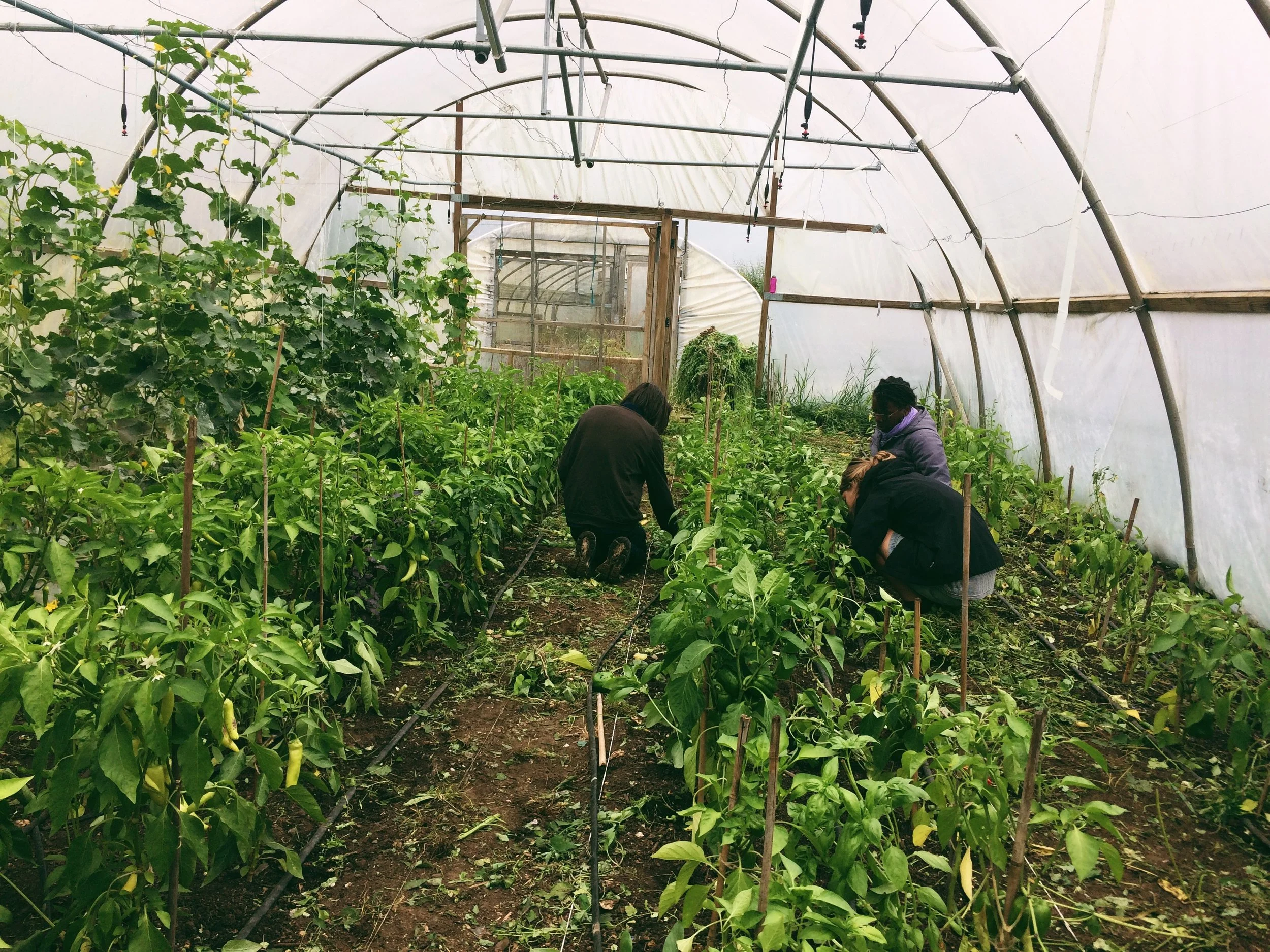Every Thursday morning I used to walk down a path in the middle of a field. The path was laid out with wood chip and soil. To my left a labyrinth of large courgette and squash leaves sheltered the vegetables hiding beneath them; to my right an array of herbs grew, resembling a mini forest. My mood instantly changed when I set foot on this path. Walking through the wooden gate that led to the path, I felt instantly at ease; at home amongst the compost and non-judgemental eyes of well-watered vegetables.
The path led me to a shed filled with familiar faces, all here seeking the same space that I was seeking. A place where their mind could let go and focus on something entirely different. From just in front of the shed you could see the entire skyline of London, from the Shard to the BT tower. It only took me over an hour to get there from Brixton, but it felt like another world entirely. You would rarely see people using their phones, the air actually felt fresh and instead of high-rise buildings you were surrounded by rows of salad leaves, Polytunnels and a tractor.
What image does the idea of city life evoke for you? Buses, crowds of people, offices maybe. For those of us that live in busy cities like London, it can be very hard to switch off and relax. Our brains are in a constant cycle of deadlines, meetings and general life admin that seems harder to achieve when you live in this cacophony of constant motion. We have little insight into how our lives are ruled by technology; we wonder why we find it hard to sleep at night, even though our brains are constantly stimulated.
Until I discovered a place where my mind could rest I had little understanding of how much it needed to do just that. As a society, we have a habit of downplaying the importance of self-care in favour of a ‘get it done’ attitude - as if there isn’t room to stop for a few hours and allow your mind to switch tack, to focus on something that has nothing to do with your work or reaching a goal set by your superiors.
A recent study published by Preventative Medicine Reports suggested that less time spent in nature “results in a number of health and behavioural problems, which in sum can constitute a ‘nature-deficit disorder.’” We all know that being in nature can boost our mood and offers many medical benefits, including increased vitamin D production from exposure to the sun and the release of serotonin stimulated by physical activity, the ‘happy chemical’. But what growing food on a farm or an allotment has, as opposed to simply walking alone in nature, is being part of a community. Not only can you do an activity that gets you outside, gets your hands dirty and connects you with the earth, but you can also simultaneously be part of a like-minded community while doing it. As a recent study on the health benefits of urban allotment growing concluded, “regular gardening on allotment sites is associated with improved physical, psychological and social health.”
In England, there is increasing awareness of the importance of getting outdoors. The number of urban food-growing projects is steadily rising and people seem more aware of the importance of mental health and self-care, and their relation to nature. But there is still a record-number of young people in Britain taking anti-depressants, and preventative measures like gardening or yoga need to be taken far more seriously. Growing food not only has the power to improve mental health but also has the power to unite communities and empower people to make their own choices when it comes to their food. Choices that, in turn, could have a profound effect on how they feel in mind, body and spirit.


